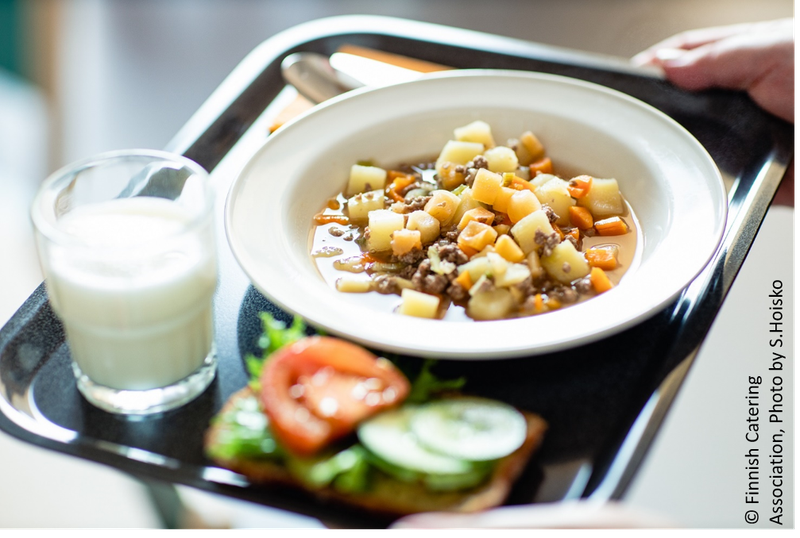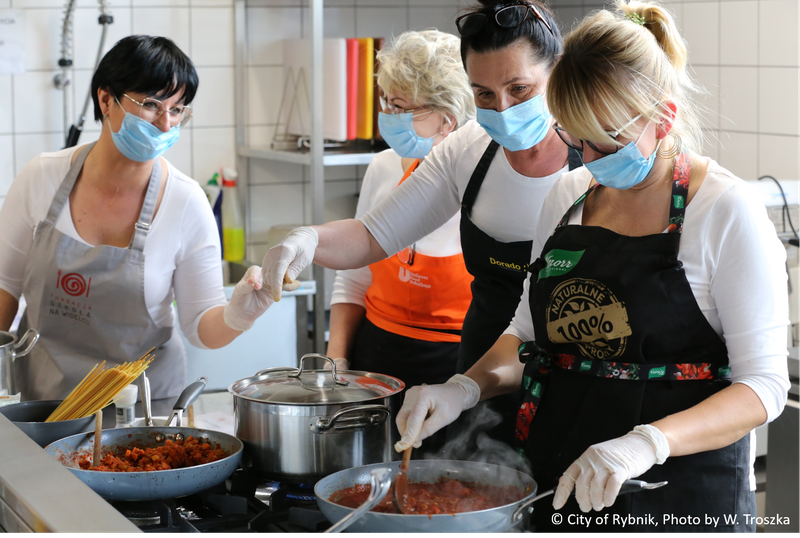Why procure and develop sustainable public meals in the Baltic Sea Region?

Sustainable food systems are an essential part of sustainable societies. Public procurement and catering services are therefore well-positioned to follow sustainability policies, whether they be issued by the state, municipality, individual institutions, or business organizations. The sustainability dimensions of social, economic, and environmental policies are there to be taken seriously by local initiatives, in local terms and conditions. A good starting point is to consider aspects of sustainability in public procurement and catering services, which can not only help provide meals for customers in economical ways, but also help deliver broader sustainability goals. These goals boil down to healthy people, a resilient environment, and a strong economy.

These Sustainability Principles were developed in the Baltic Sea Region, but they can be applied elsewhere within the EU and beyond, in line with local conditions. These principles are designed for public procurement and catering service organizations, reaching from agricultural production on the one hand, to customers on the other. The impacts of changes made towards sustainability cover the whole food chain, forming complex and extensive food networks.
Sustainable Public Meal Principles
Principle 1
Engage in SMART* strategic thinking. Develop a strategy and set the goals. It is difficult to make a change if one does not know what the aim is, who implements it, and how. A sustainability strategy addresses all these questions.
*SMART is a concept to develop aims that are Specific, Measurable, Achievable, Relevant, and Time-Bound.
Principle 2
Think about the role of procurement in sustainable developments. The items procured, from food to materials, need to be more ecological, including organic and fairly traded food as well as consumables such as detergents, cleaning equipment, and non-woven towels. Labelling schemes can meaningfully support the procurers' choice.
Principle 3
Raise awareness of and appreciation for public meal provision, as it is often overlooked by stakeholders, whether they be customers, public authorities, suppliers, or NGOs. Different communication strategies such as marketing material also spreads the message about many aspects of sustainable meals to all stakeholders who engage with meal services.
Principle 4
Enable capacity-building for the personnel working in public procurement and catering services. The challenge of building and maintaining sustainable food systems is a demanding one, entailing specialist knowledge and collaborations. Therefore, professional learning needs to be continuous as new areas of and opportunities for sustainability arise.
Principle 5
Develop meals and menus to ensure healthy and sustainable diets. Design recipes according to nutritional recommendations, and help mitigate climate change and eutrophication by focusing on plant-forward eating, which can also benefit biodiversity. Consider also combining this with a commitment to organic food use.
Principle 6
Focus on waste reduction, whether it be from food or other materials. Firstly, know your waste and rethink the food service at large. Then, improve meals, materials usage, and service procedures to avoid waste. It is important to consider food waste across both kitchen and service processes.
Principle 7
Rethink the premises and kitchen processes in terms of consumption of energy, water, and materials. Make changes to help conserve these and, if possible, deploy new, more energy-efficient equipment and meal preparation processes, such as ‘cook and serve’ and ‘cook cold’.
Principle 8
Increase collaboration capacity with stakeholders, as this holds promises for further development and learning. The collaborations also feed into the capacity-building and awareness-building principles above.
To download a pdf of the principles, click here.
The Sustainable Public Meal Principles have been developed during the Interreg BSR StratKIT project (2019-2021, www.stratkit.eu, @StratKIT) via direct consultations with key stakeholders and experts from six BSR countries.